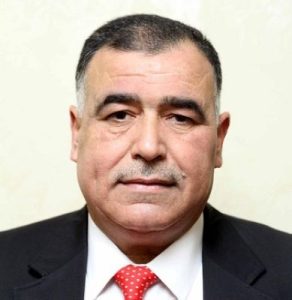Parents rely on five main alternatives to transport their children to and from schools to cope with the rising bus fees in some private schools, which range between 4,000 and 11,000 dirhams per student per academic year.
They told “Emarat Al Youm” that these alternatives include relying on family transportation using their own means, carpooling among parents in residential neighborhoods, hiring private drivers (car lifts), using public transportation where available, and resorting to small private buses supervised by trusted local community members. They called for reconsidering school transportation fees and offering more flexible alternatives to ease the financial burden on families while ensuring student safety and regular attendance.
School principals stated that there has been no increase in school bus fees this year, and discounts of up to 15% are granted to low-income families.
Challenges List
Specifically, parents confirmed the rise in school bus fees, ranging between 4,000 and 11,000 dirhams per student, which has become a major concern for families, especially low-income ones with multiple children in different education stages, forcing them to find alternative solutions for transporting their children to and from school.
Parents including Mohammed Taha, Um Aliaa, Mayada Hassan, Salma Mahmoud, Ihab Ziada, and Maitha Shawqi told “Emarat Al Youm” that the alternatives are less costly compared to official school transportation fees but impose organizational burdens and require precise daily arrangements. Sometimes, they may not provide the same level of safety and discipline as licensed school buses.
They pointed out that the most prominent alternative options include self-transportation by a family member, where some parents adjust their daily schedules to ensure their children’s transport, as well as community cooperation through carpooling with other families in the same neighborhood, which helps reduce costs and provides safety.
They added: “Hiring private drivers (car lifts) is one available alternative, as well as contracting licensed private transport companies offering services at relatively lower fees, in addition to using public transportation where available, and resorting to small private buses supervised by trusted local community members.
They reported that some private schools increase bus fees annually by 100%, which causes significant hardship for low-income families, questioning how they can afford tuition and bus fees that exceed tuition fees, especially with multiple children. They called for government oversight to regulate the arbitrary annual increases imposed by private schools on school transportation services.
Reasons for Seeking Alternatives
They identified five reasons forcing them to avoid school transportation and seek alternatives: continuous unjustified fee increases, lack of oversight on these increases, buses not ready to operate in some schools, unqualified drivers and supervisors with no internal school evaluation, and finally, using bus service as leverage against parents who delay tuition payments by denying students access to the bus.
They said: “Fair investment in private education is an undeniable right, and those who want to enroll their children in private schools must bear the costs, but service fees should remain within a balanced financial system governed by actual expenses incurred by school administrations, plus an acceptable profit margin.”
Fee Stability
Conversely, private school principals Hamidan Madi, Asmaa Ghabbour, and others confirmed that their schools have not increased fees this year and offer discounts to families with more than one student, either on tuition or bus fees, reaching up to 15%, as well as assistance for low-income students.
They said: “Bus fees are reasonable and suitable for all families, ranging between 4,000 and 10,000 dirhams depending on students’ residential areas, and the amount decreases the closer the residence is, not increasing regardless of the area. They pointed out that the school contracts companies to transport students and will not increase transportation fees next academic year, as the school views this as a service for students, not a profit channel.
They added that schools operate under supervision; any increase in bus or tuition fees is based on approval from relevant authorities who study requests and approve what they consider fair for both schools and parents.
Non-Educational Services
Relevant education authorities confirmed that there is oversight of all private schools, monitoring their activities and educational processes, and holding violators accountable. They confirmed no complaints from parents about fee increases and urged them to report any excessive fee hikes.
They clarified that non-educational services are provided in two ways: first, directly by the school, subject to fee oversight teams that prevent any increase without prior approval; second, through contracts with external providers, which are not subject to the same oversight but monitored by other relevant government bodies.
Fee Stability
Several parents confirmed no additional financial demands for bus services in public schools, with no issues in using transportation services, keeping bus fees stable without problems in readiness or qualification.
Parents:
- Carpooling among families in neighborhoods is one of the main solutions.
- We offer discounts up to 15% for low-income families.
- School transportation fees range between 4,000 and 11,000 dirhams per student.













Recommended for you
Talib Al-Rifai Chronicles Kuwaiti Art Heritage in "Doukhi.. Tasaseem Al-Saba"
Exhibition City Completes About 80% of Preparations for the Damascus International Fair Launch
Unified Admission Applications Start Tuesday with 640 Students to be Accepted in Medicine
Egypt Post: We Have Over 10 Million Customers in Savings Accounts and Offer Daily, Monthly, and Annual Returns
His Highness Sheikh Isa bin Salman bin Hamad Al Khalifa Receives the United States Ambassador to the Kingdom of Bahrain
Al-Jaghbeer: The Industrial Sector Leads Economic Growth